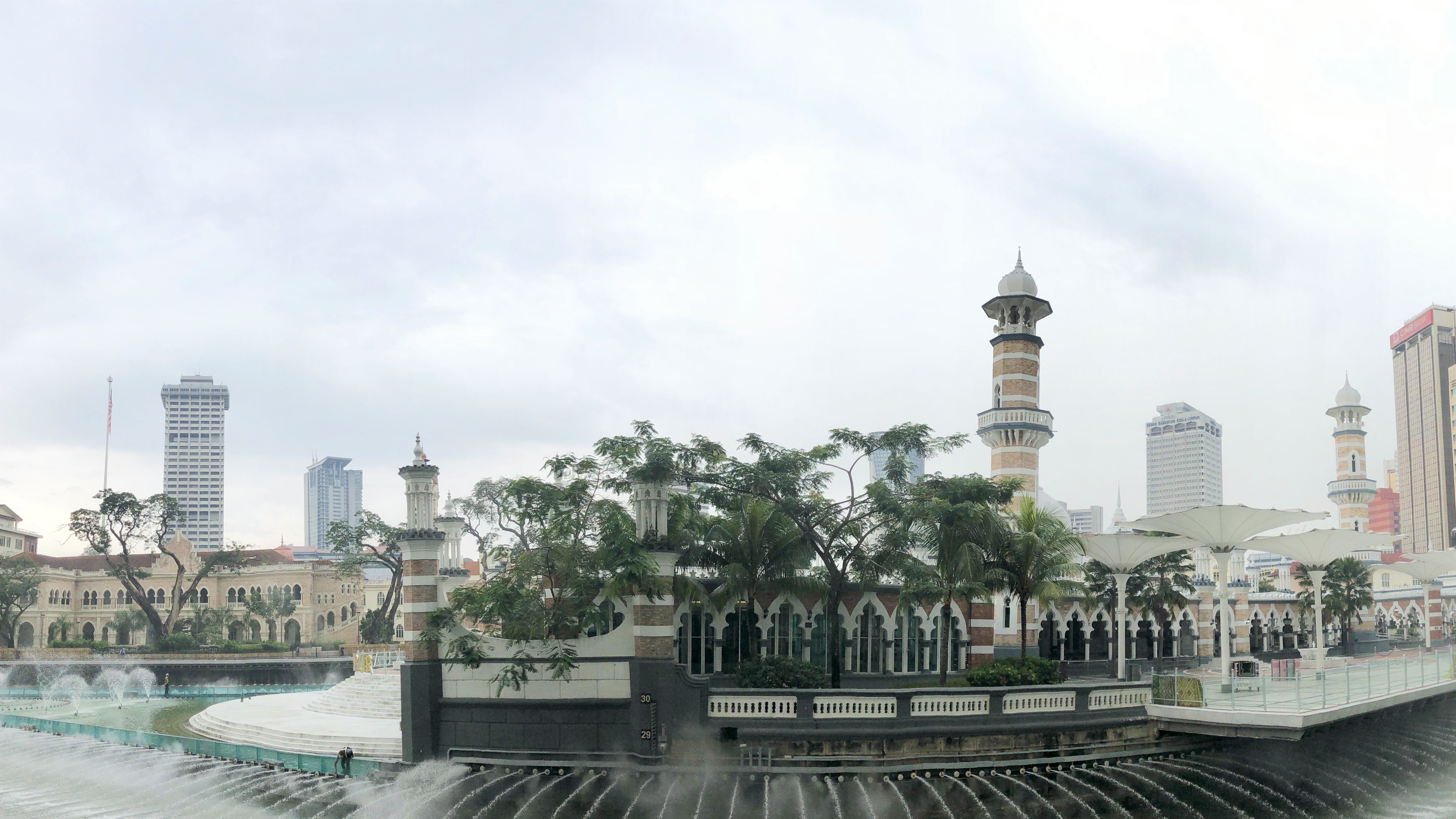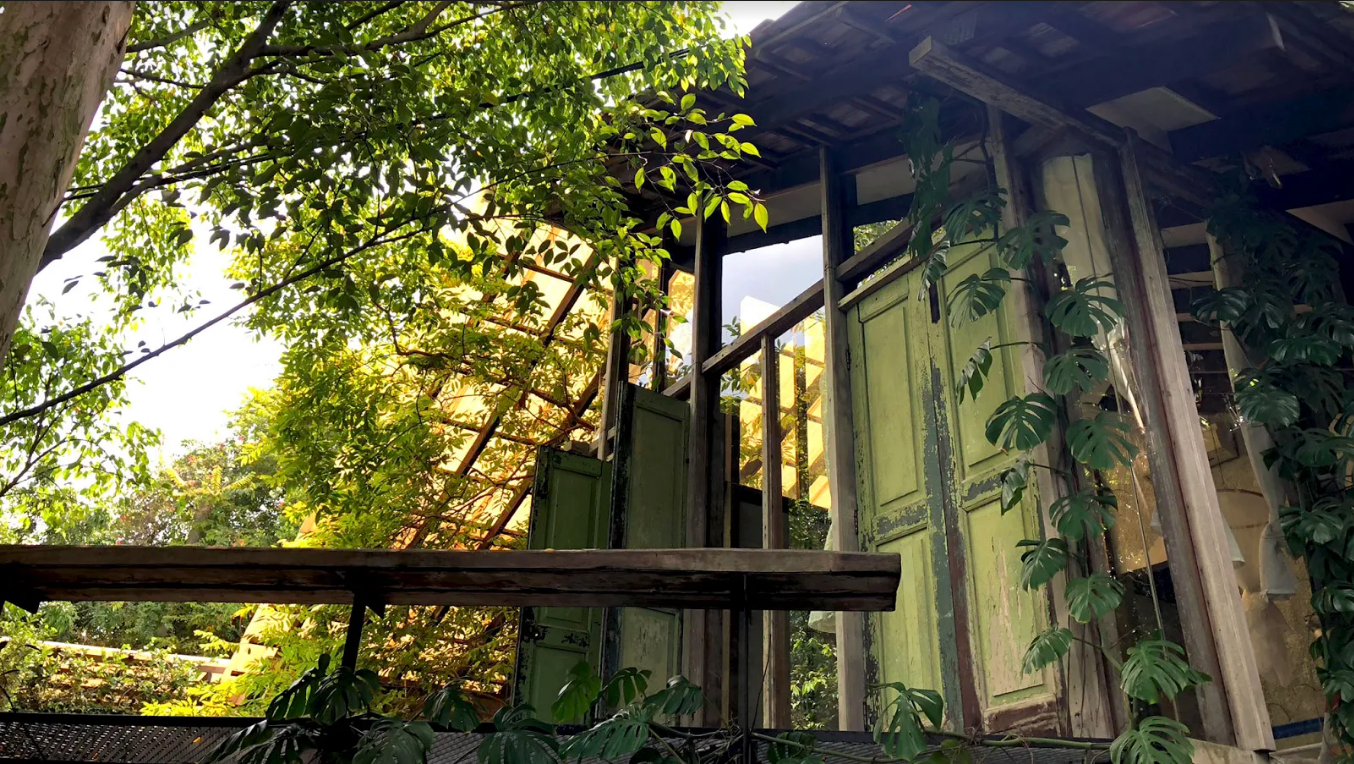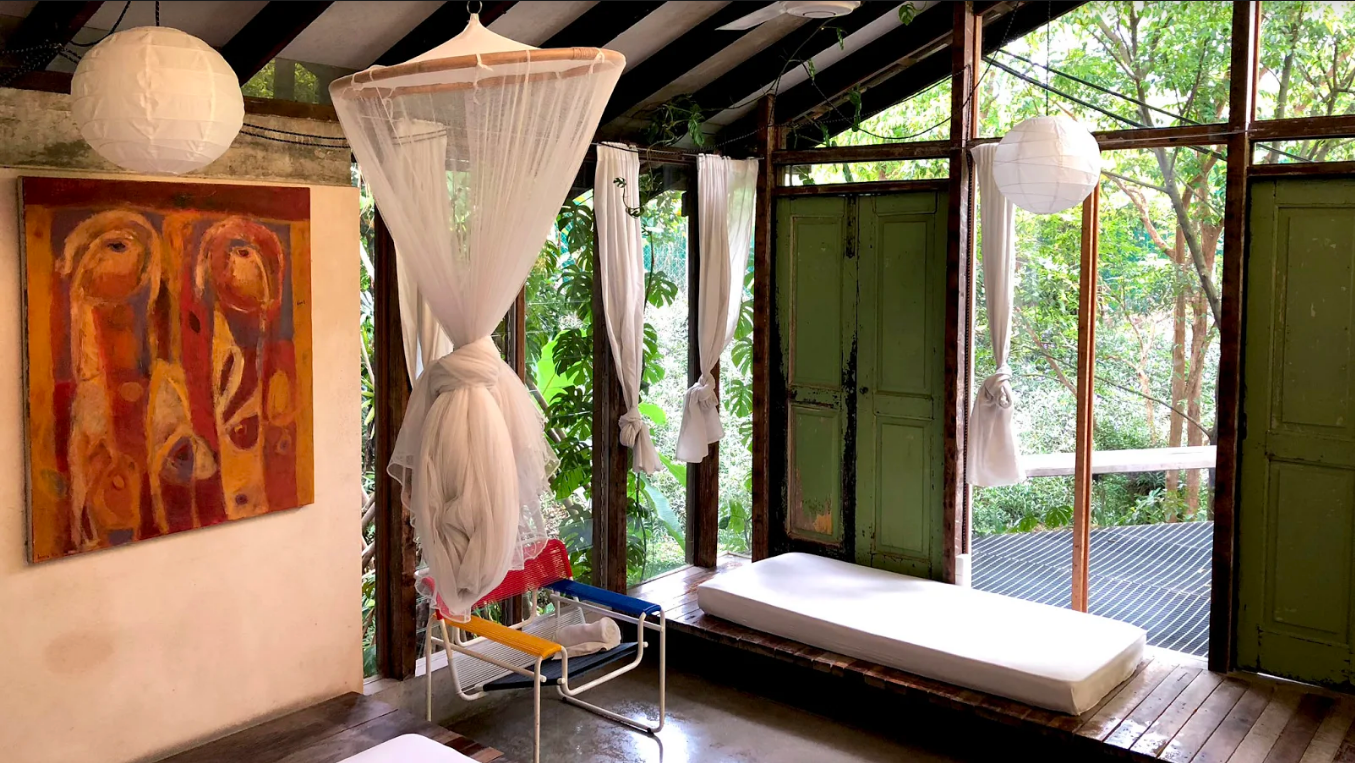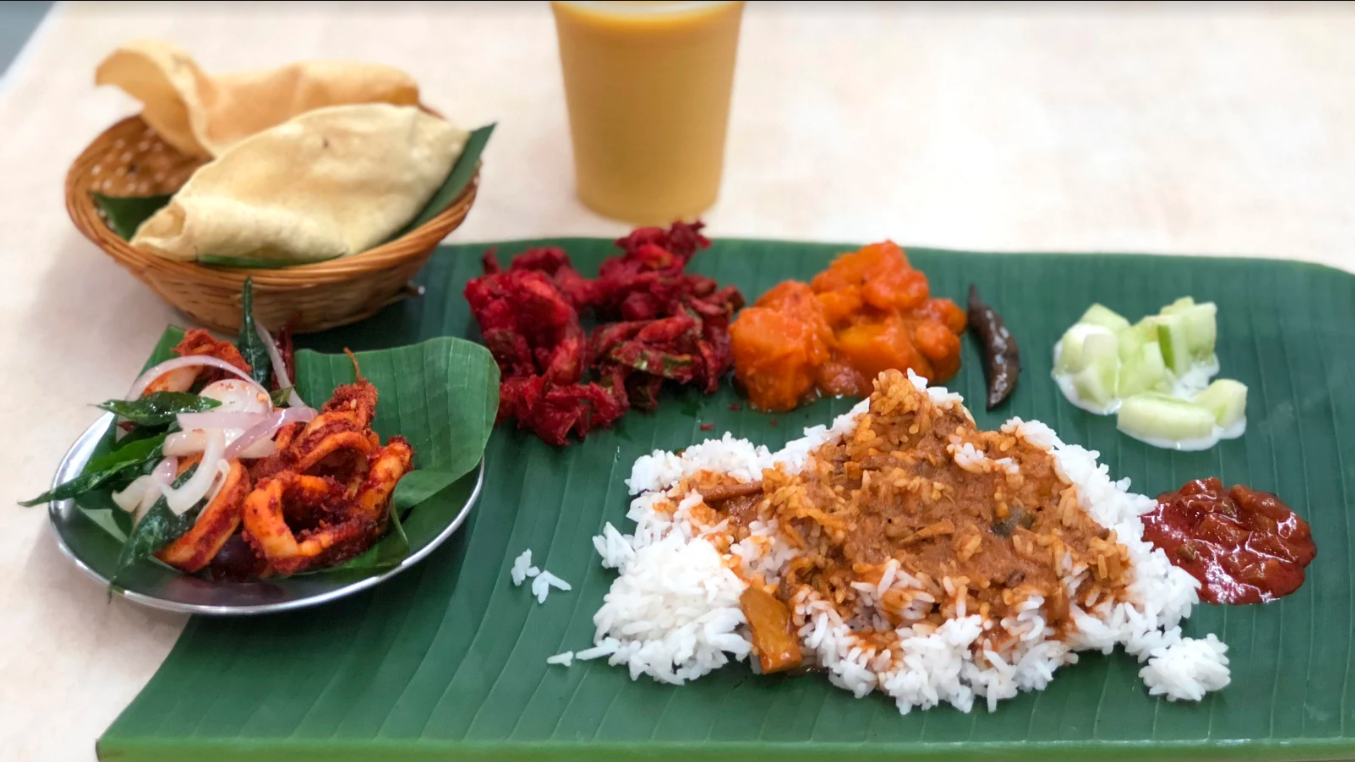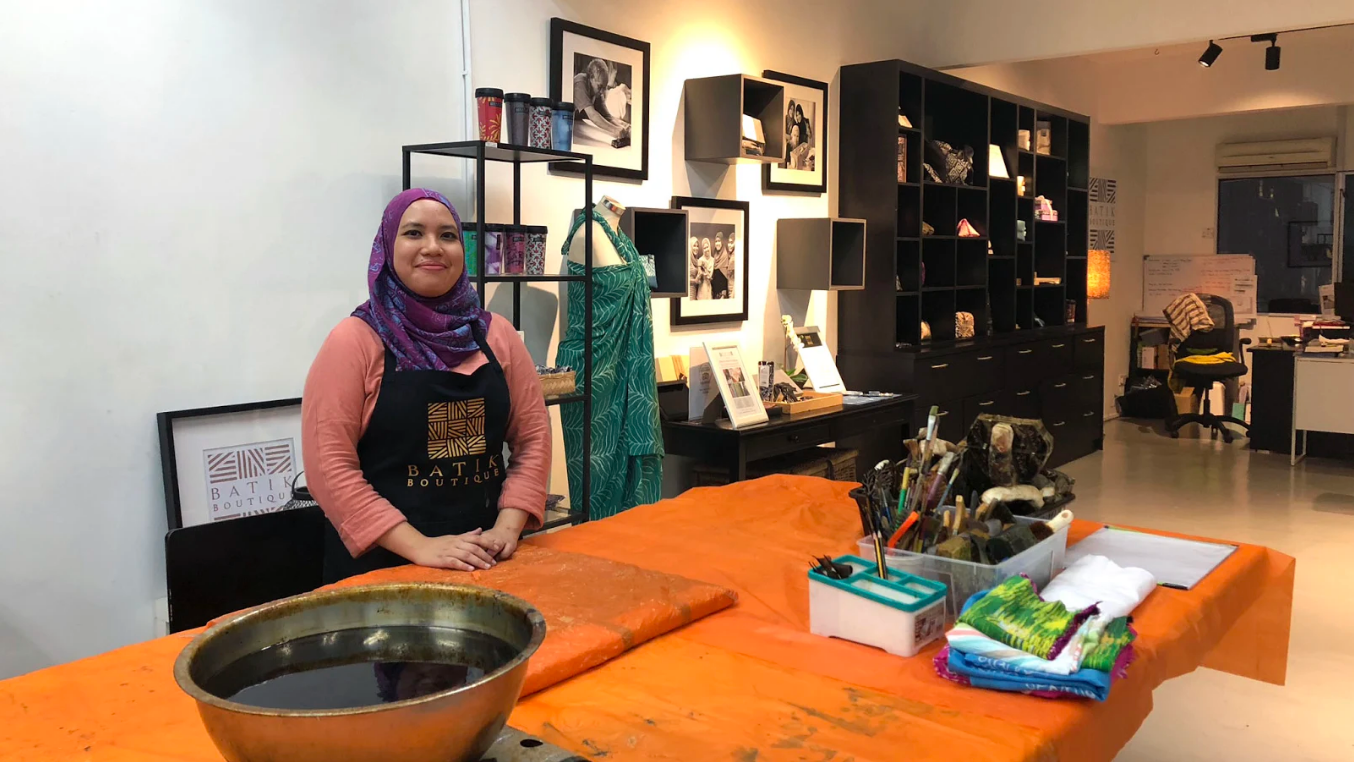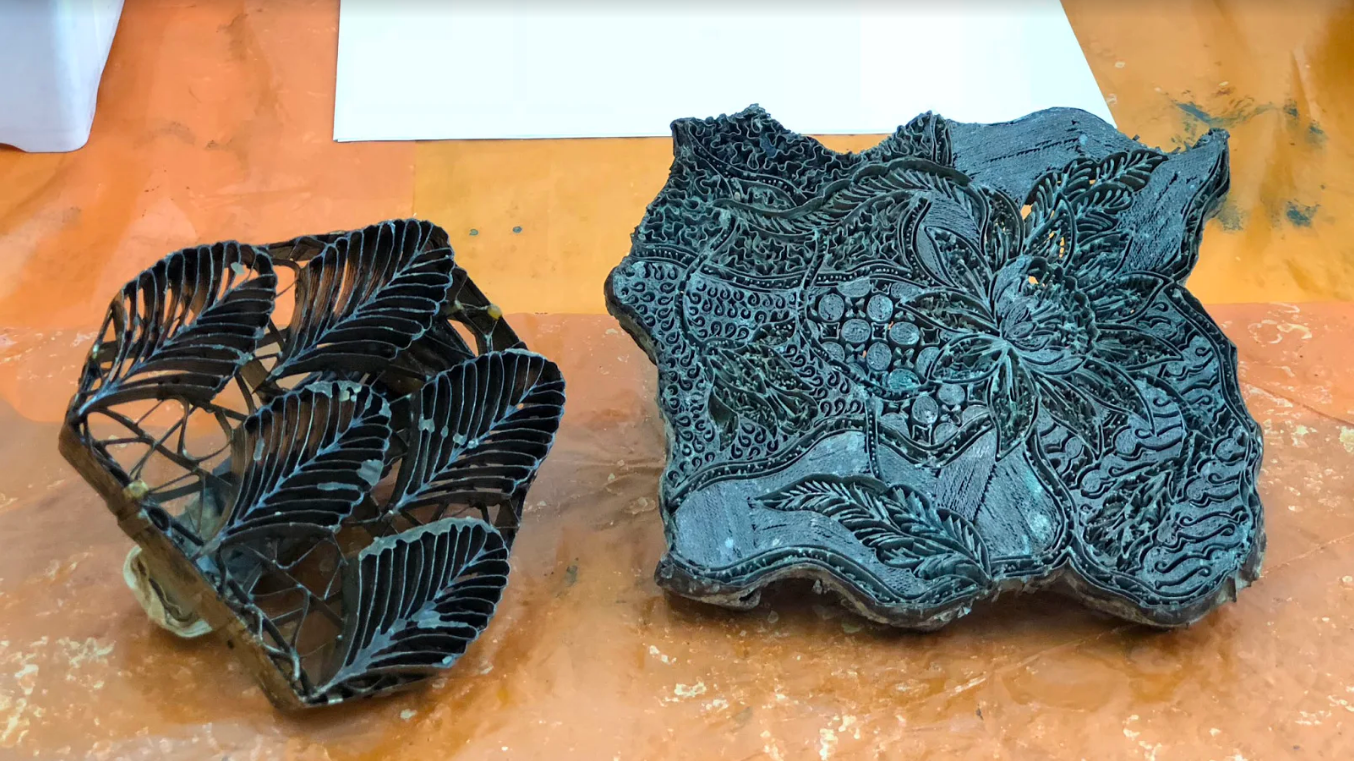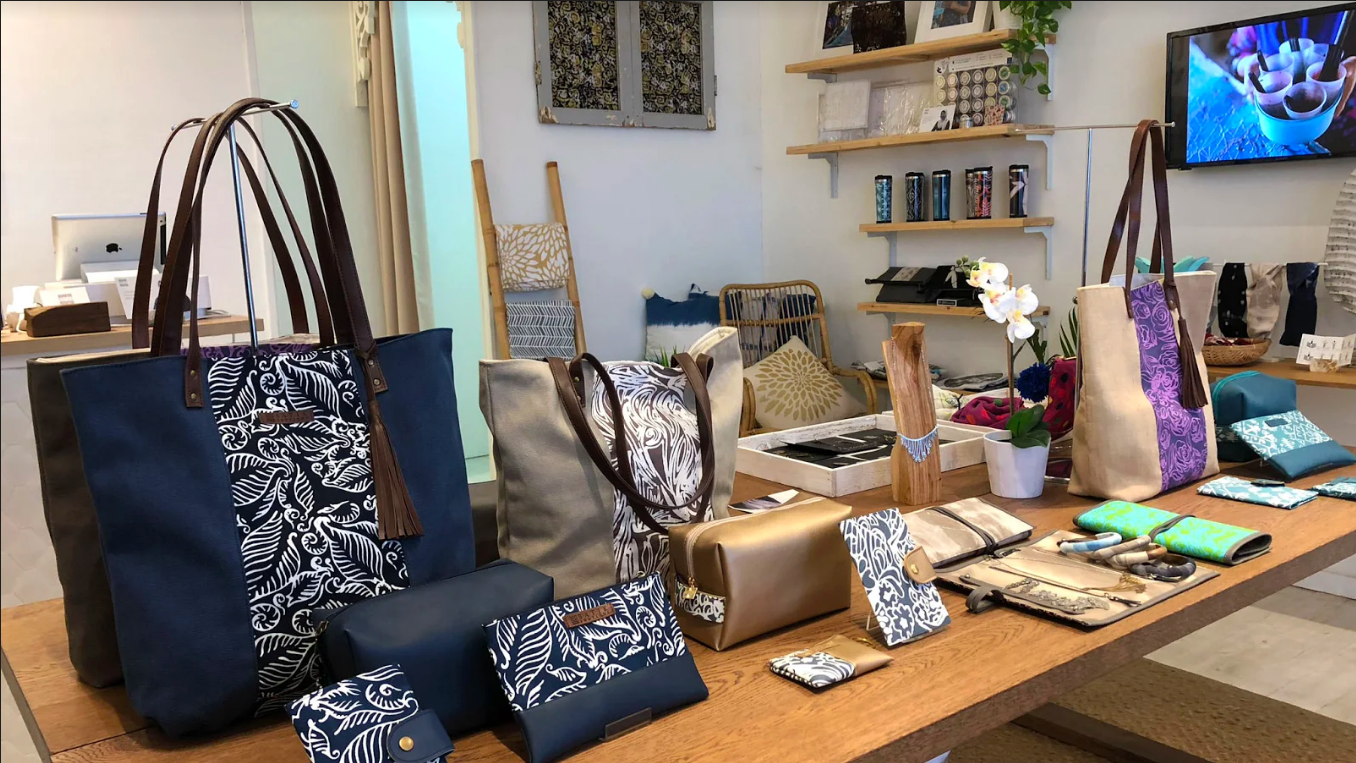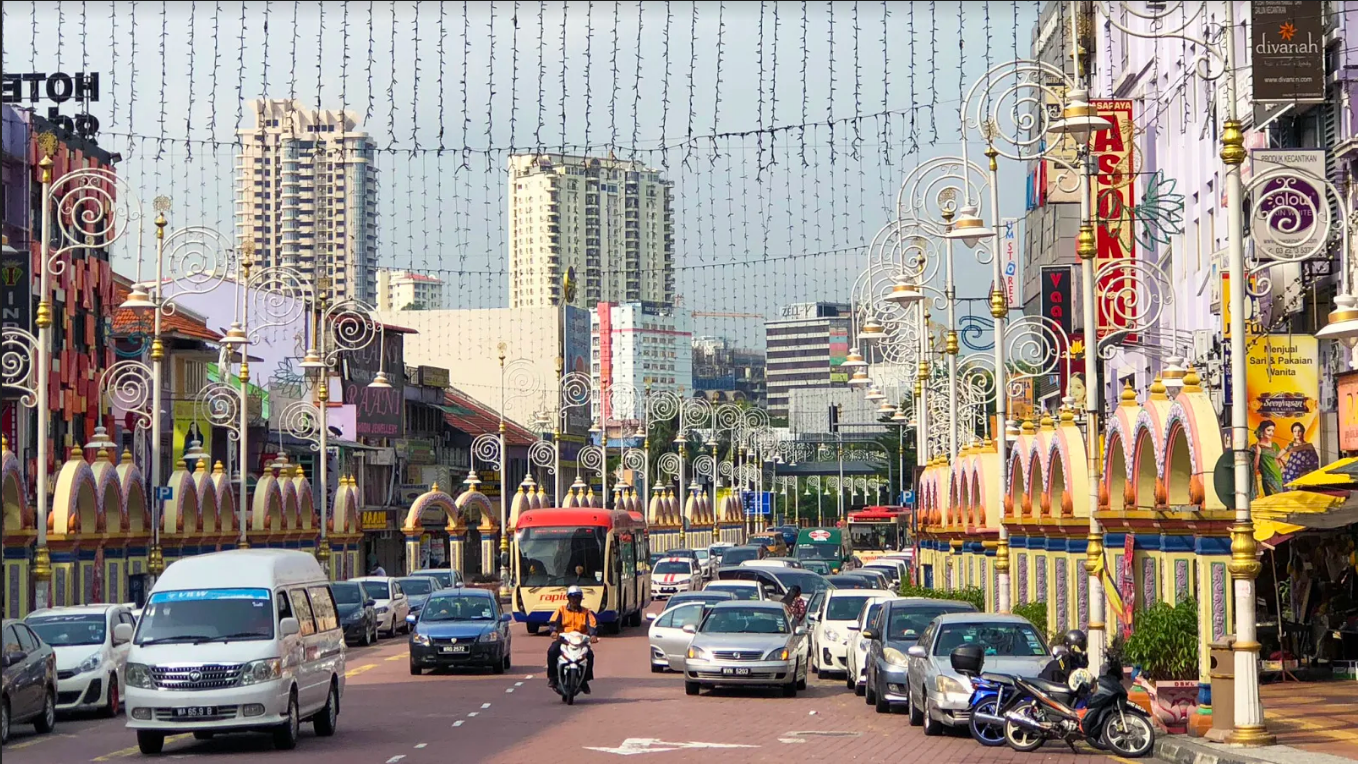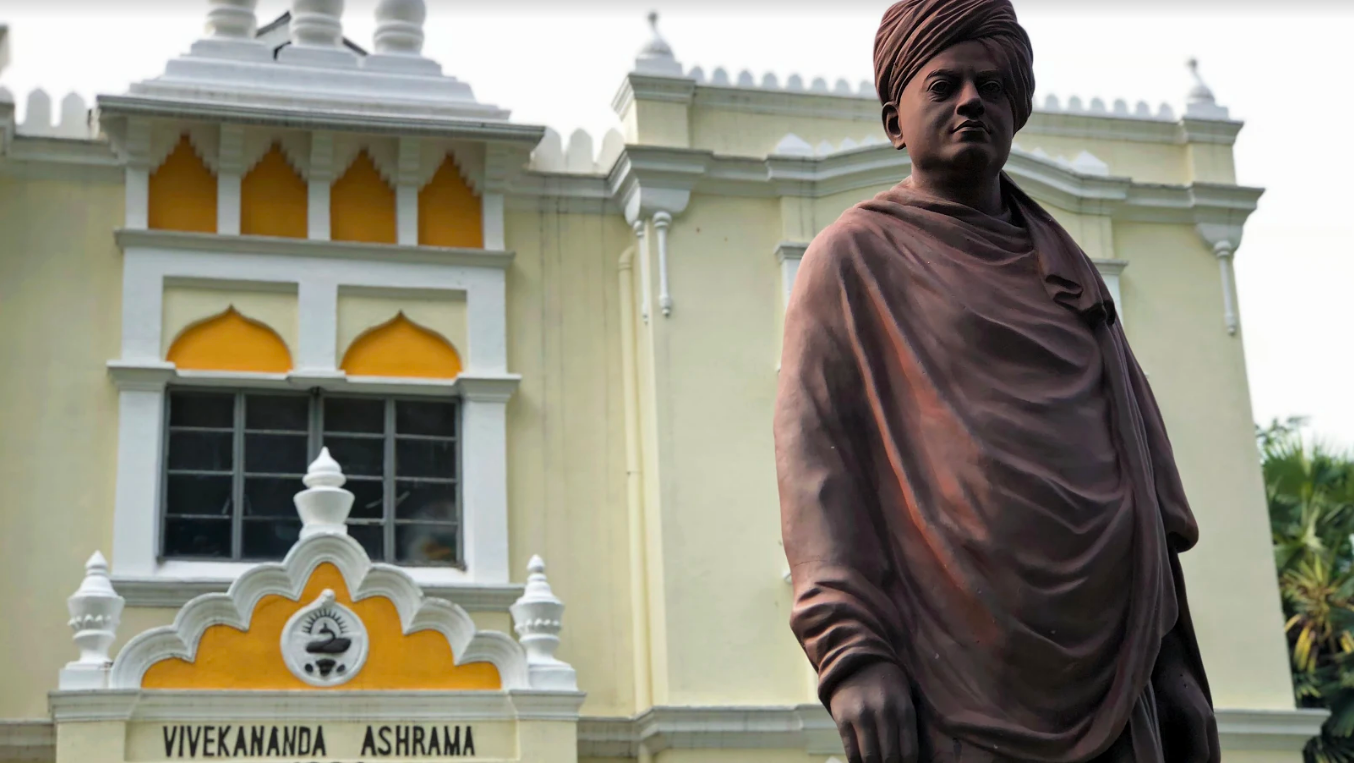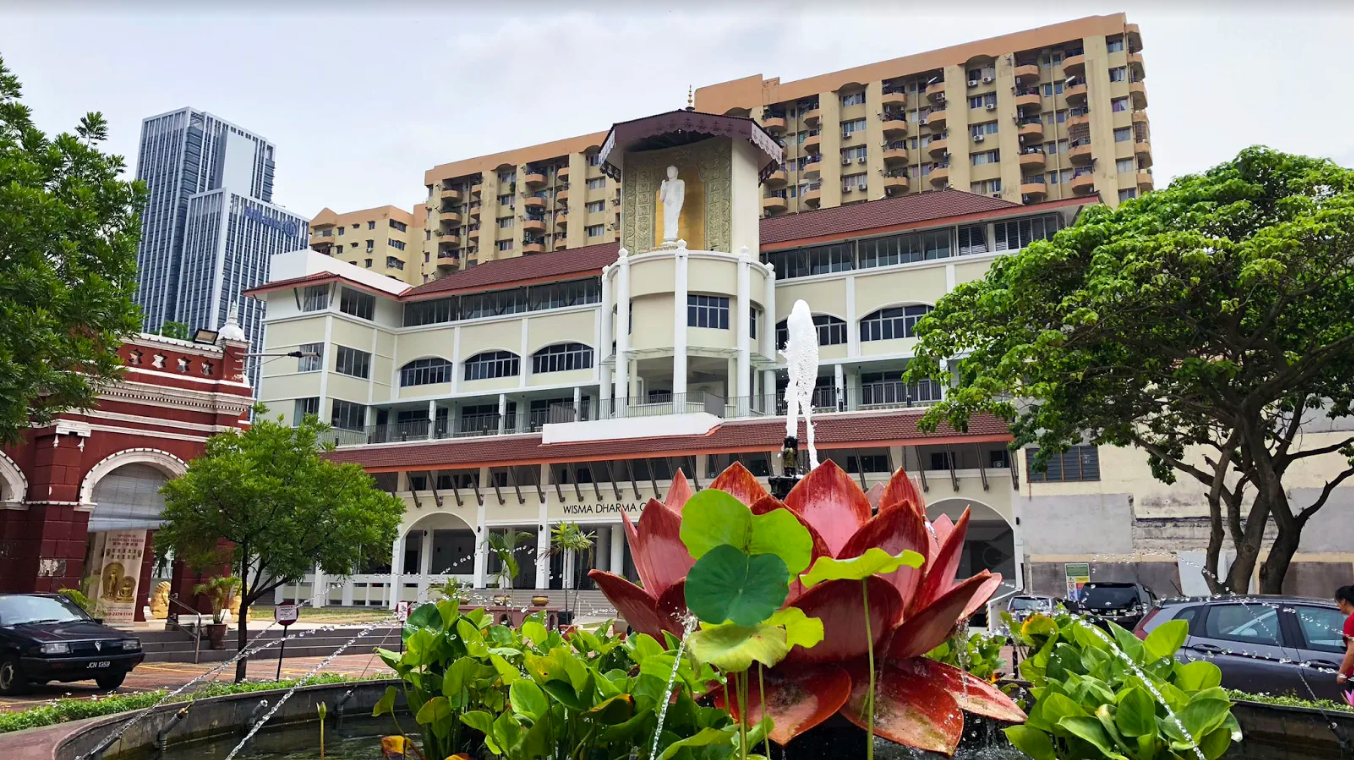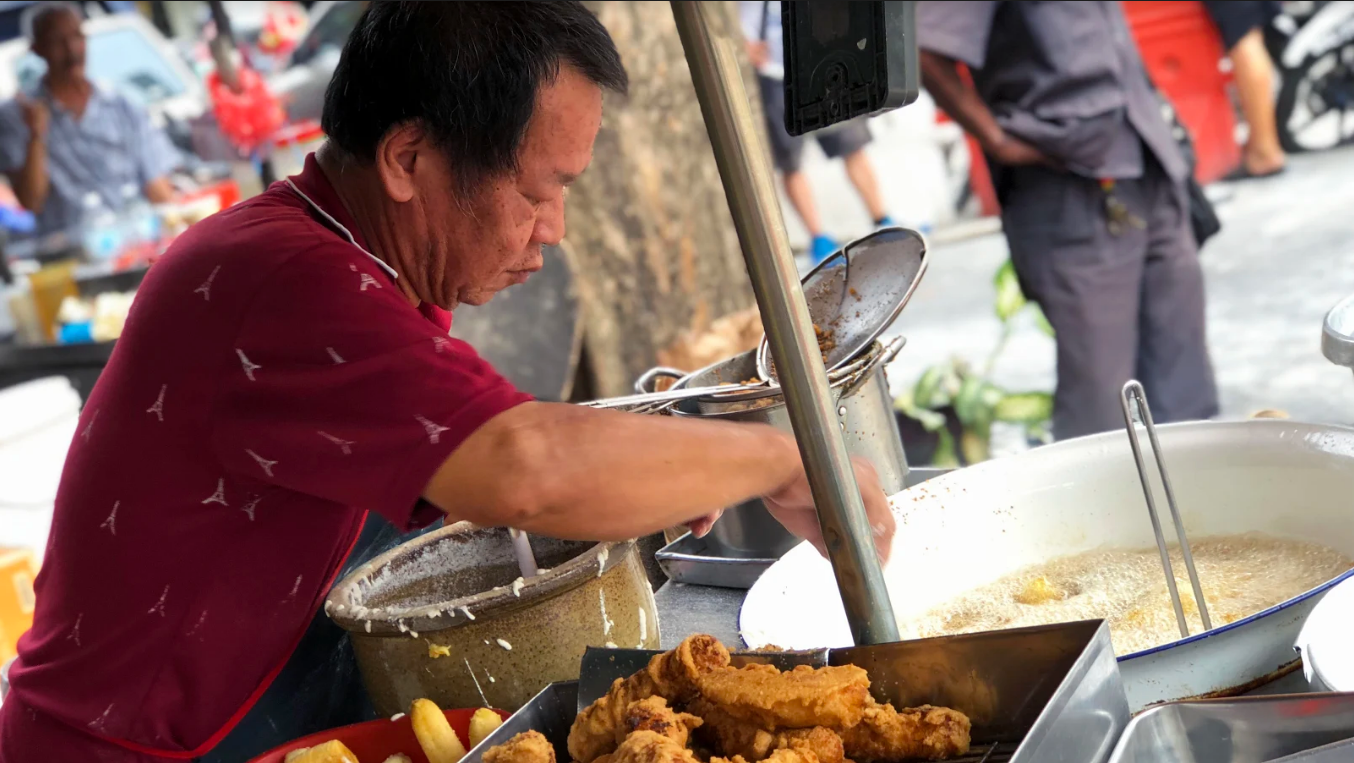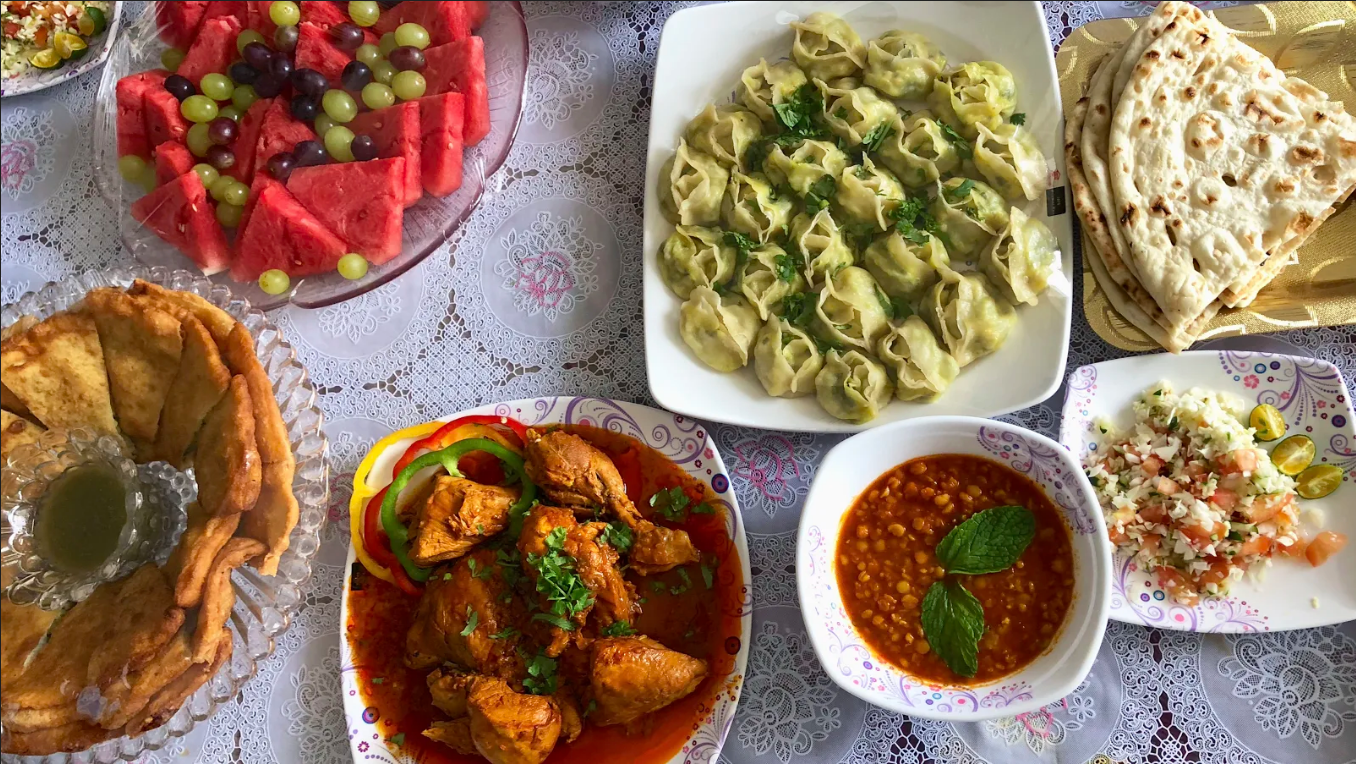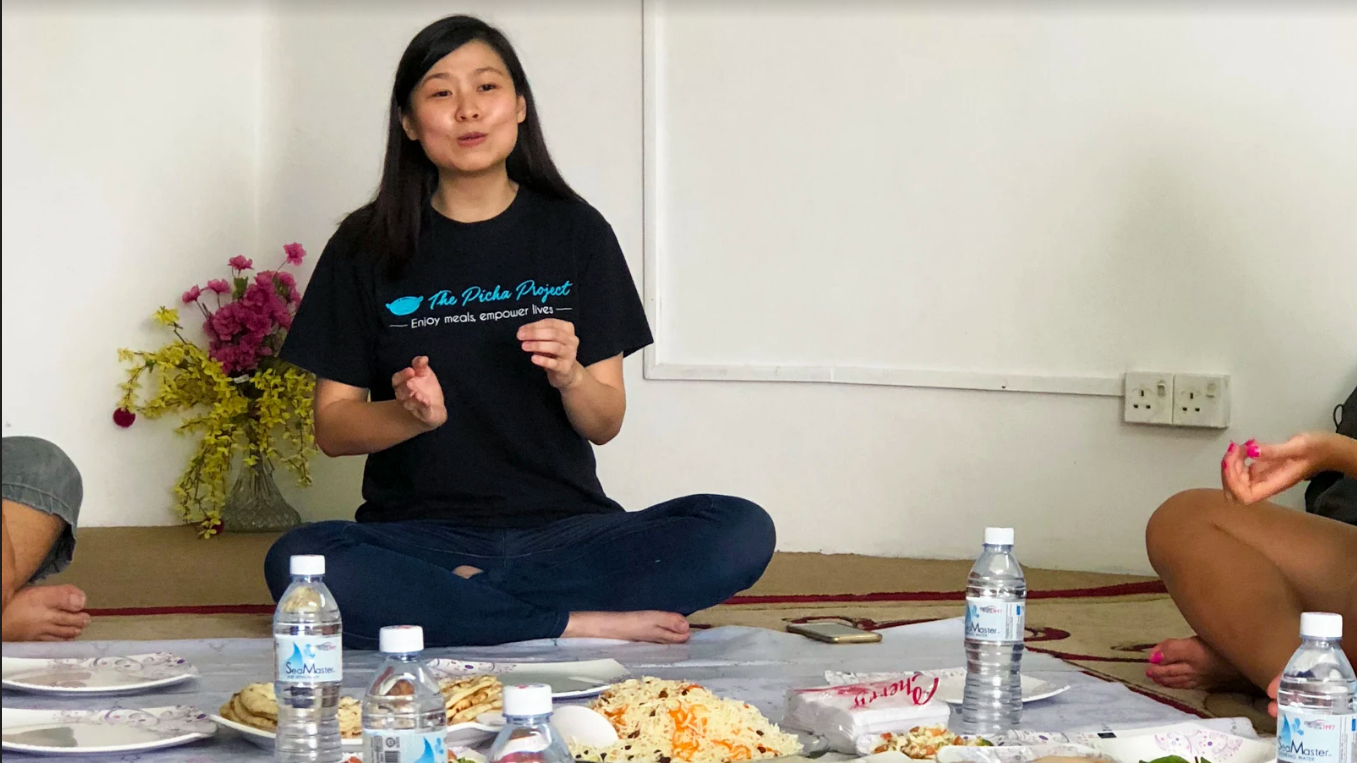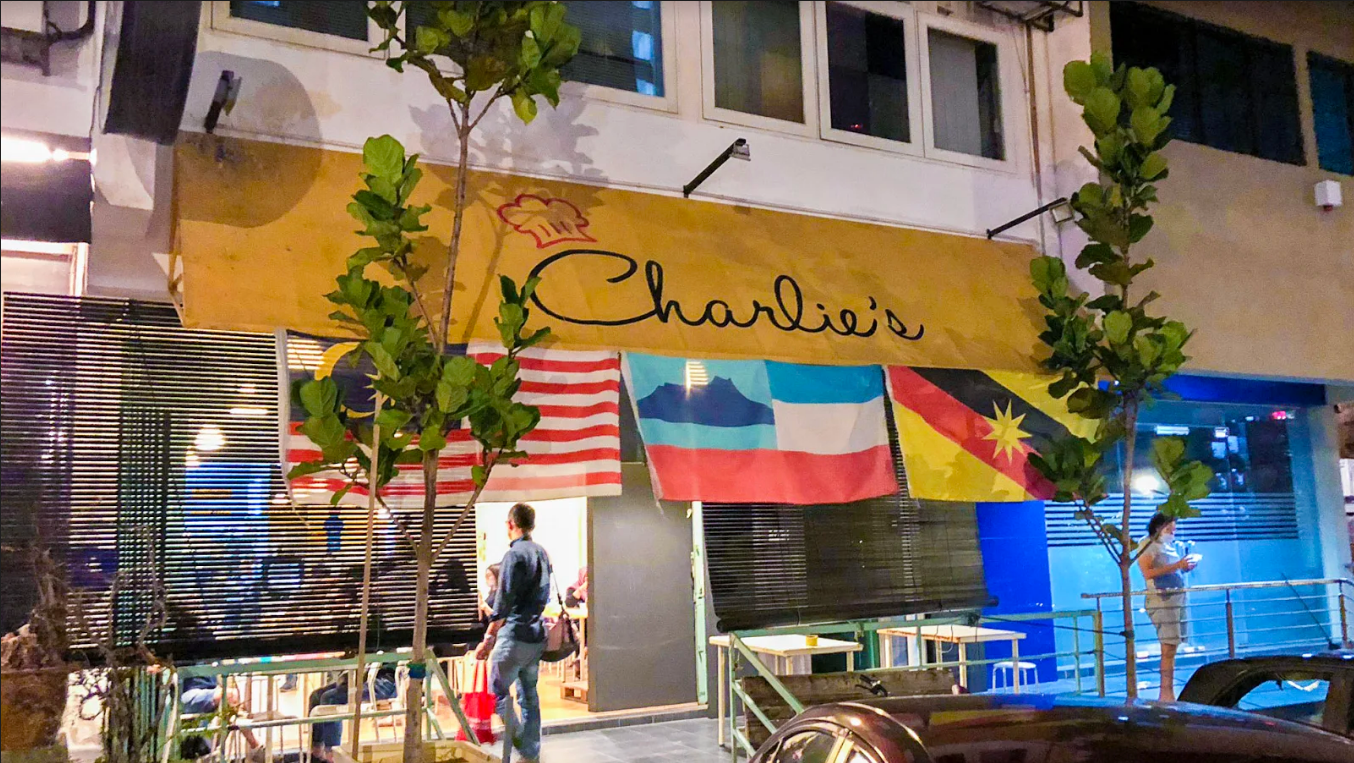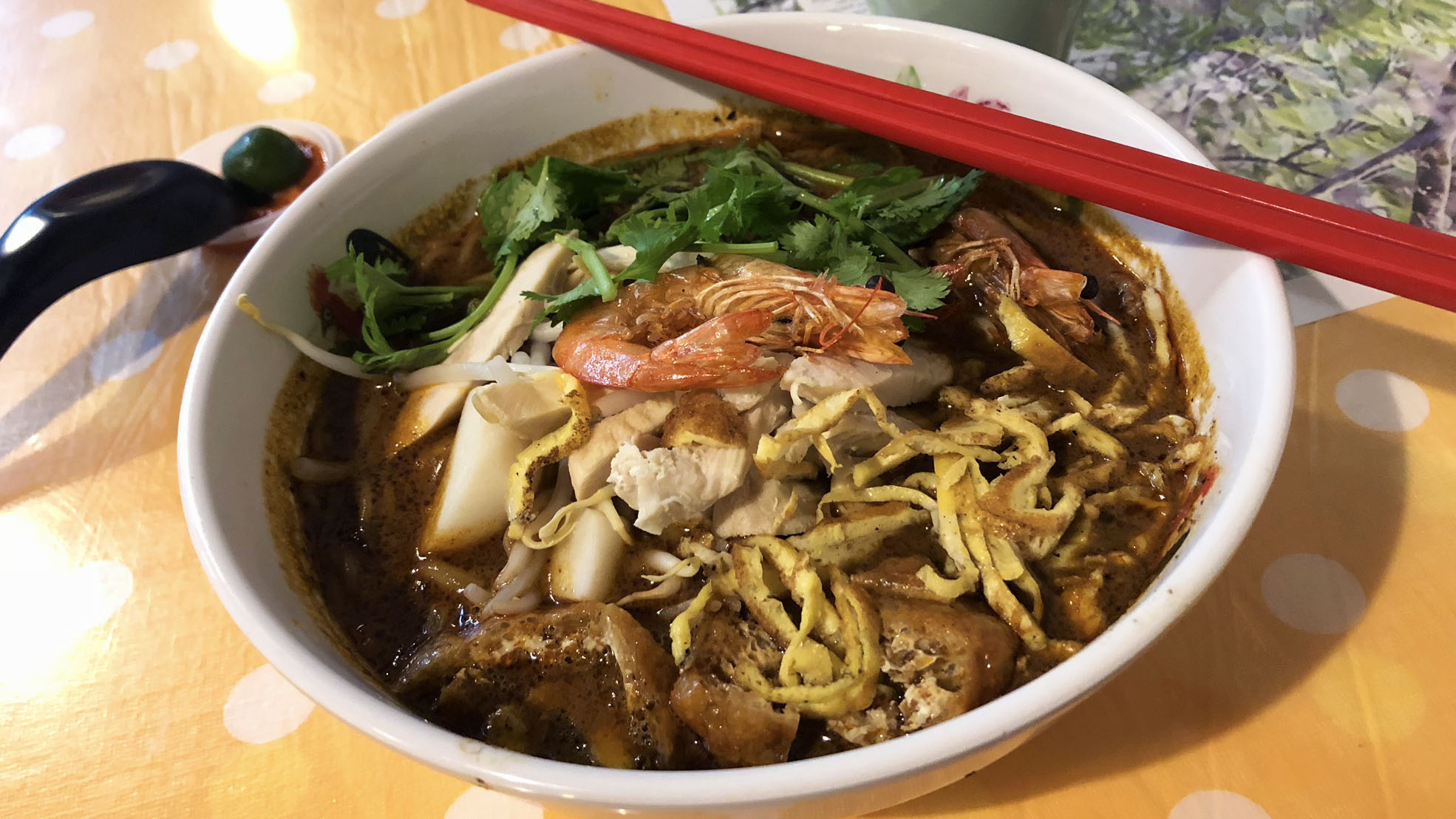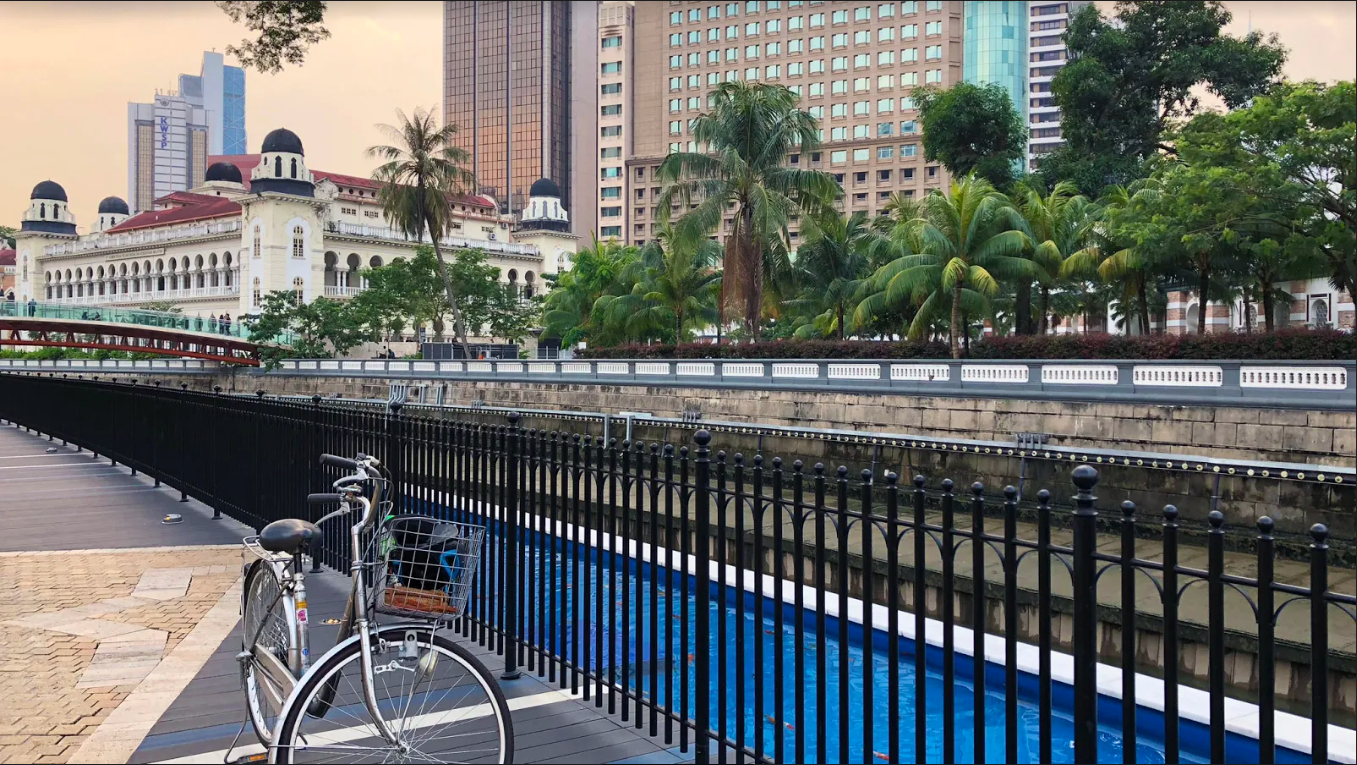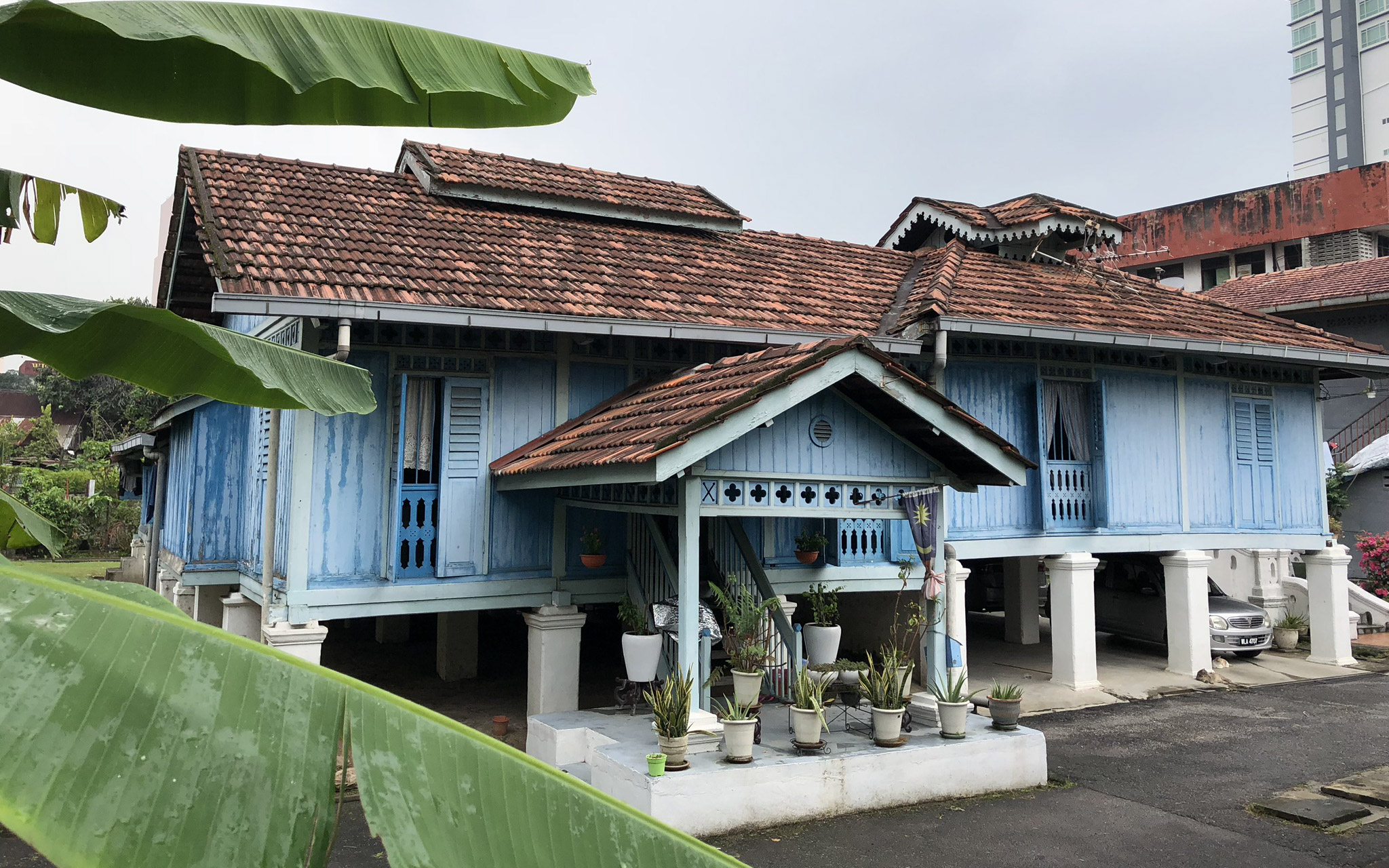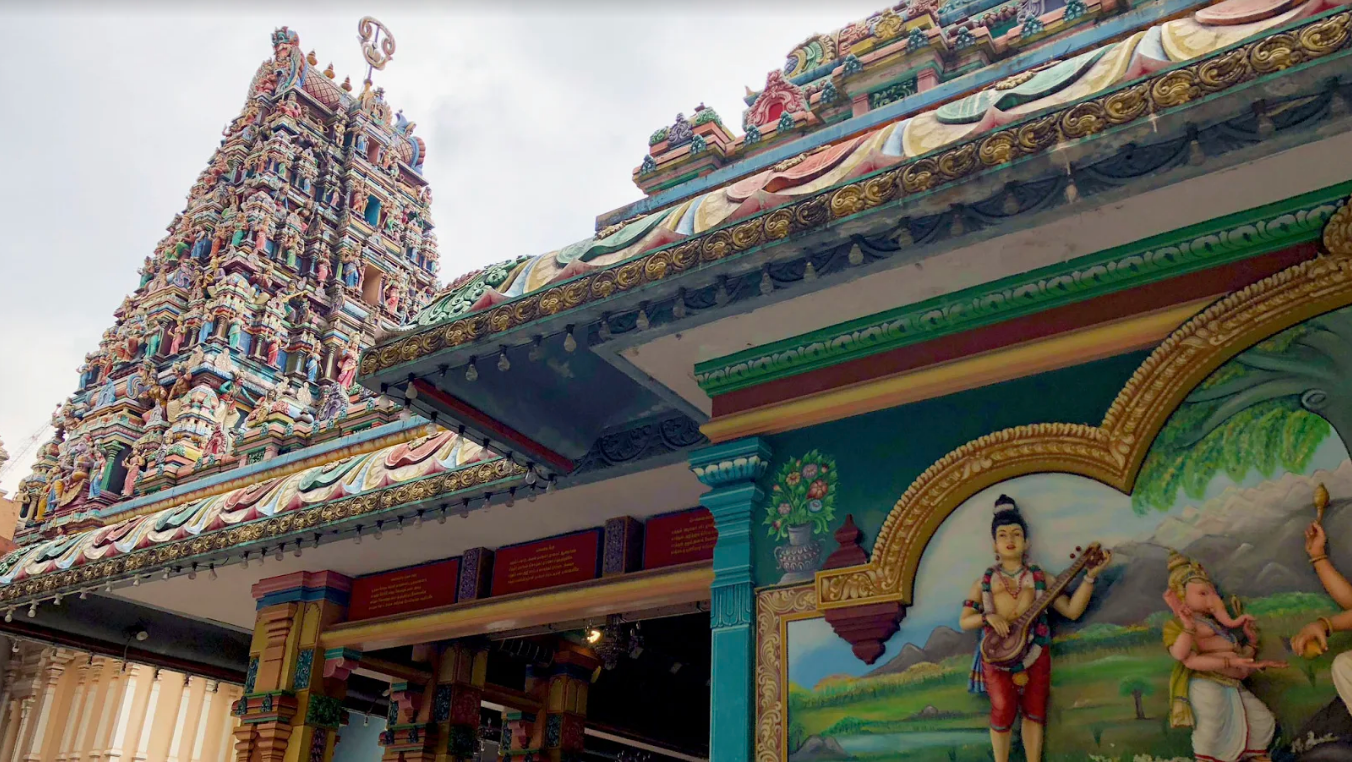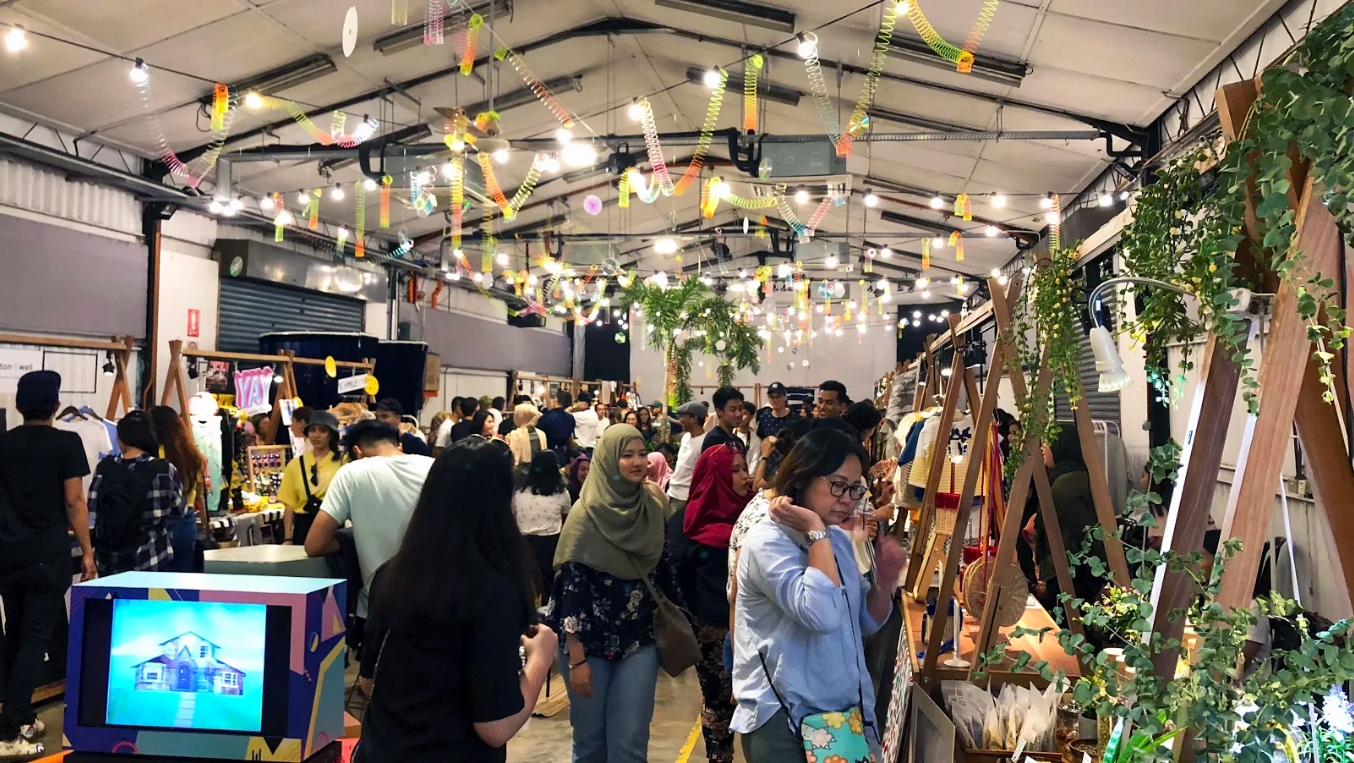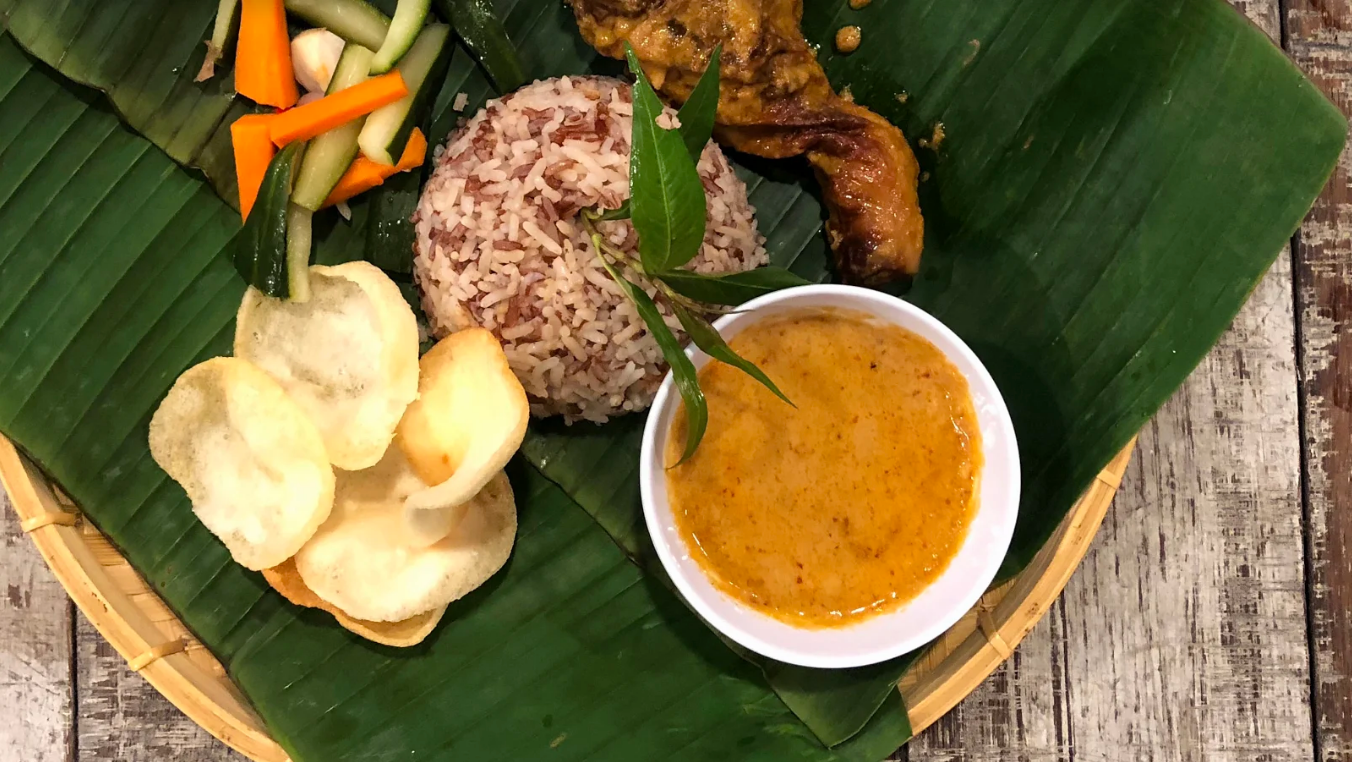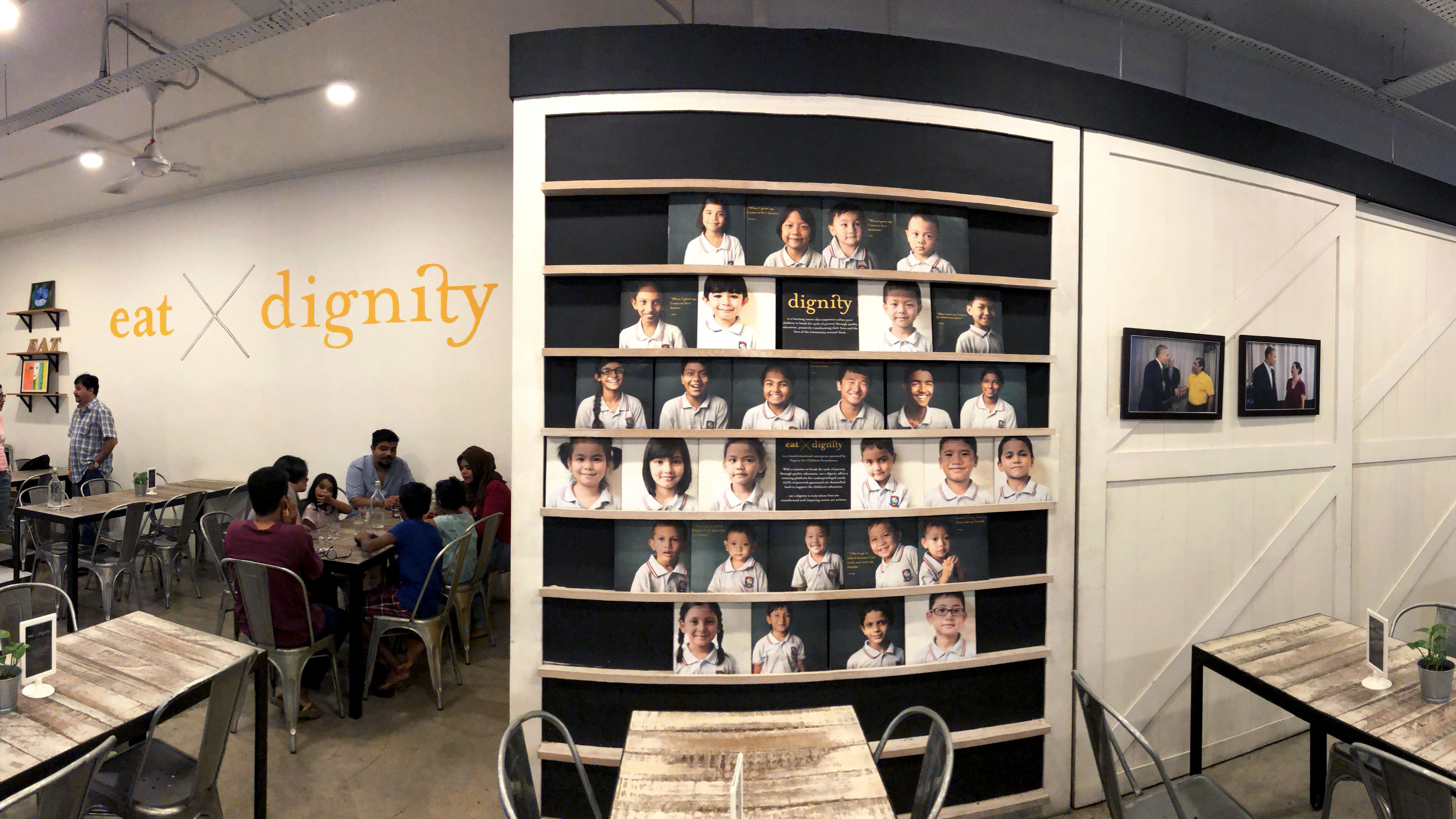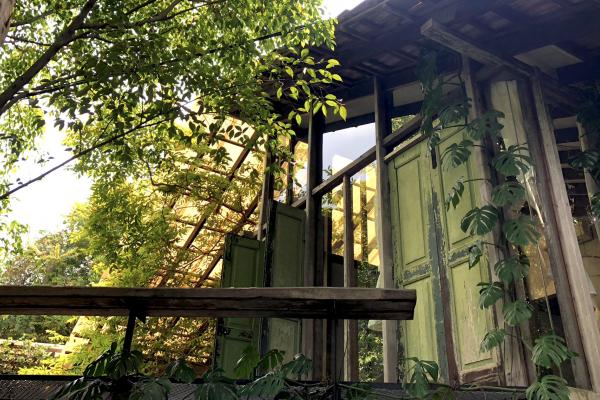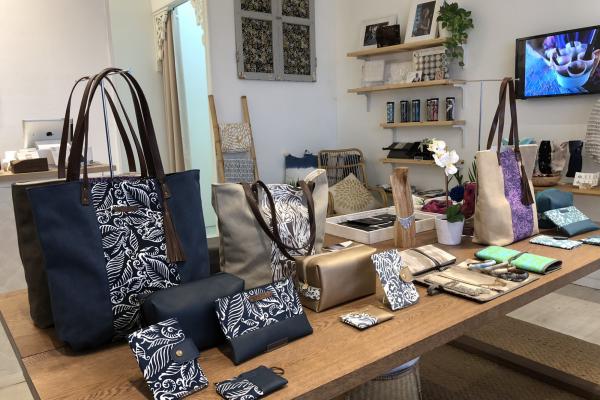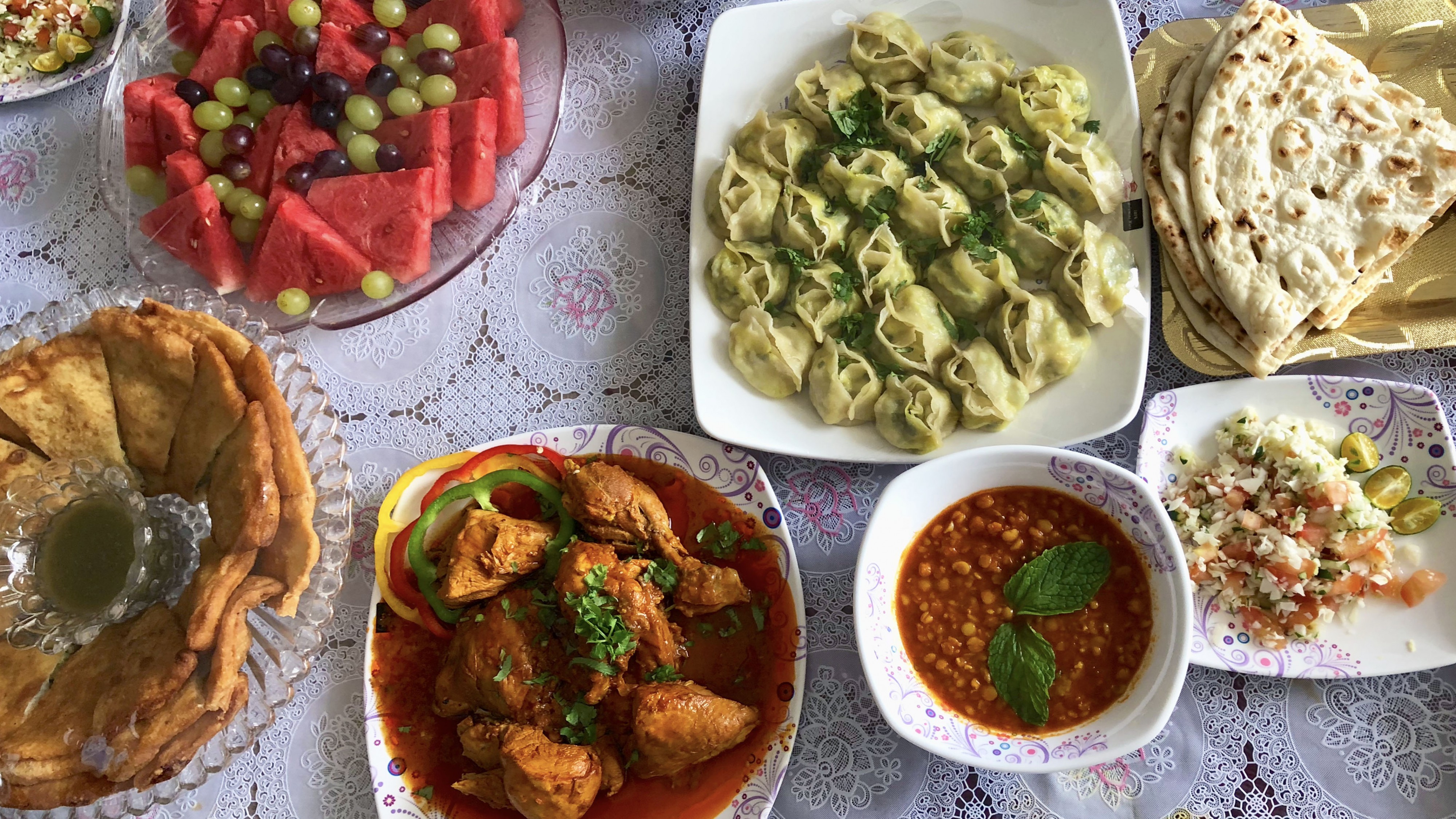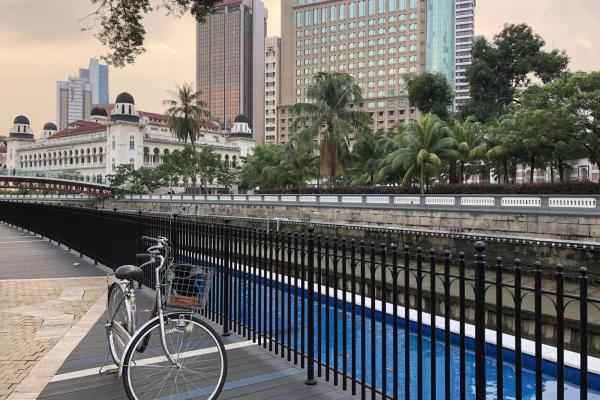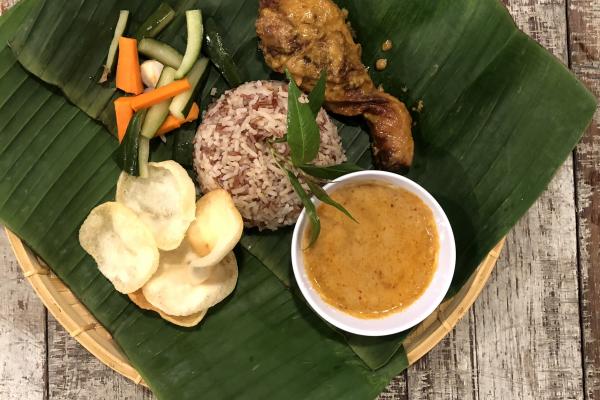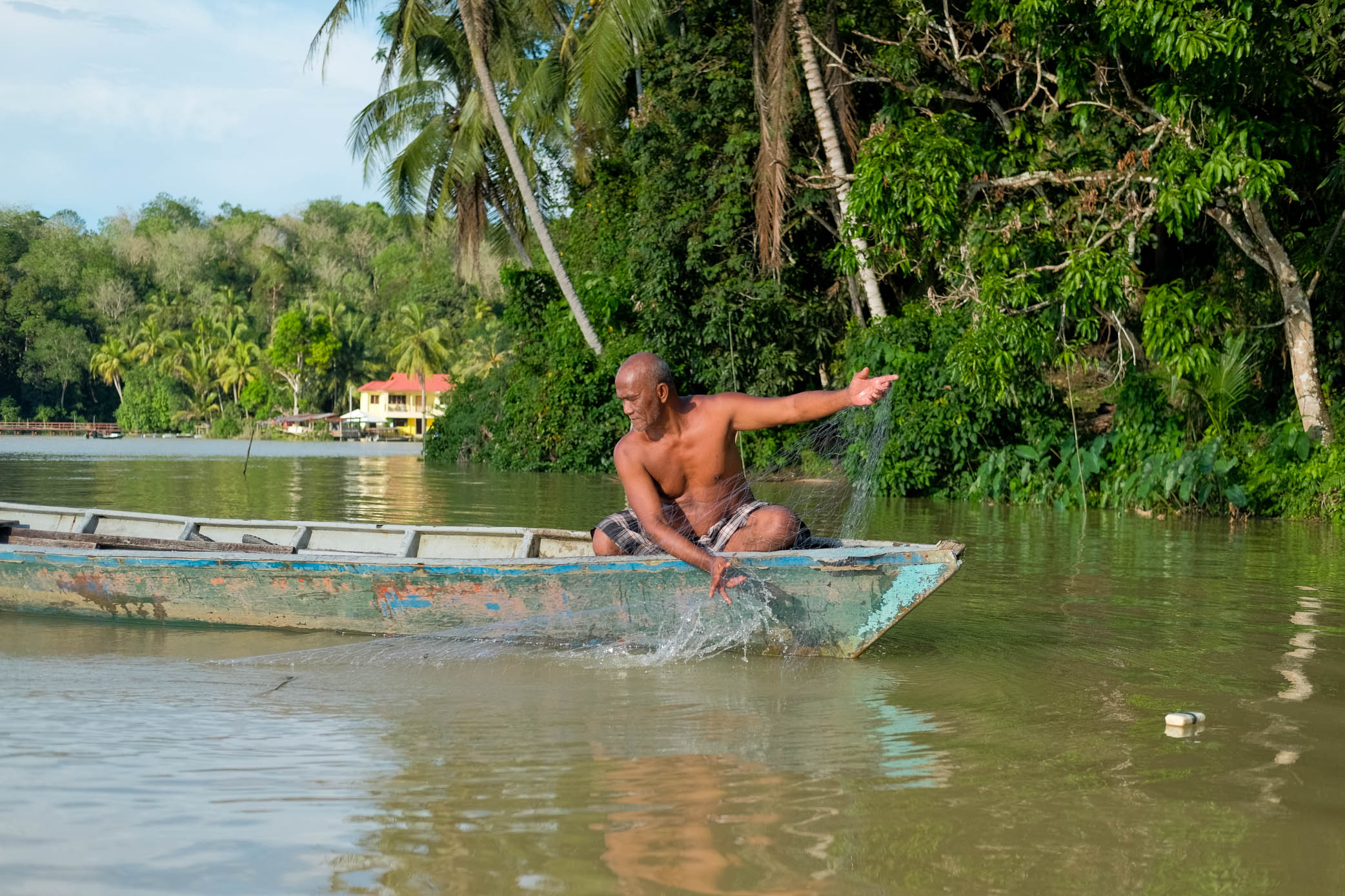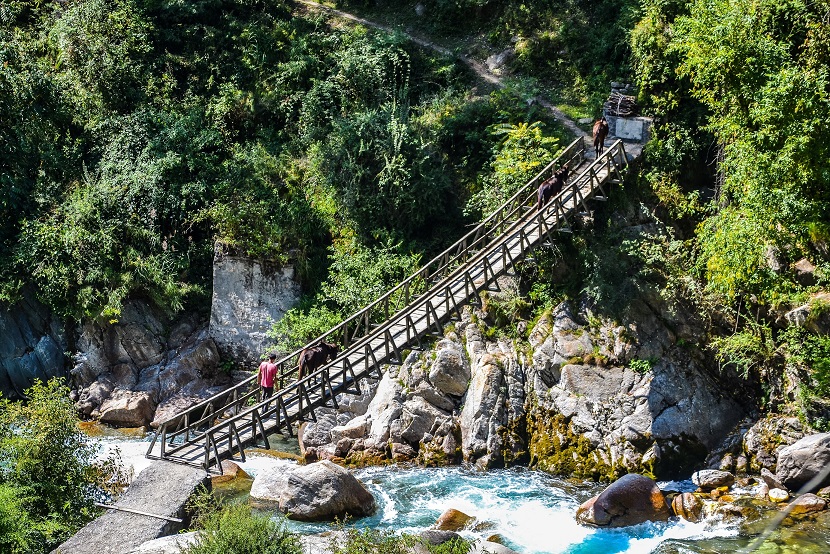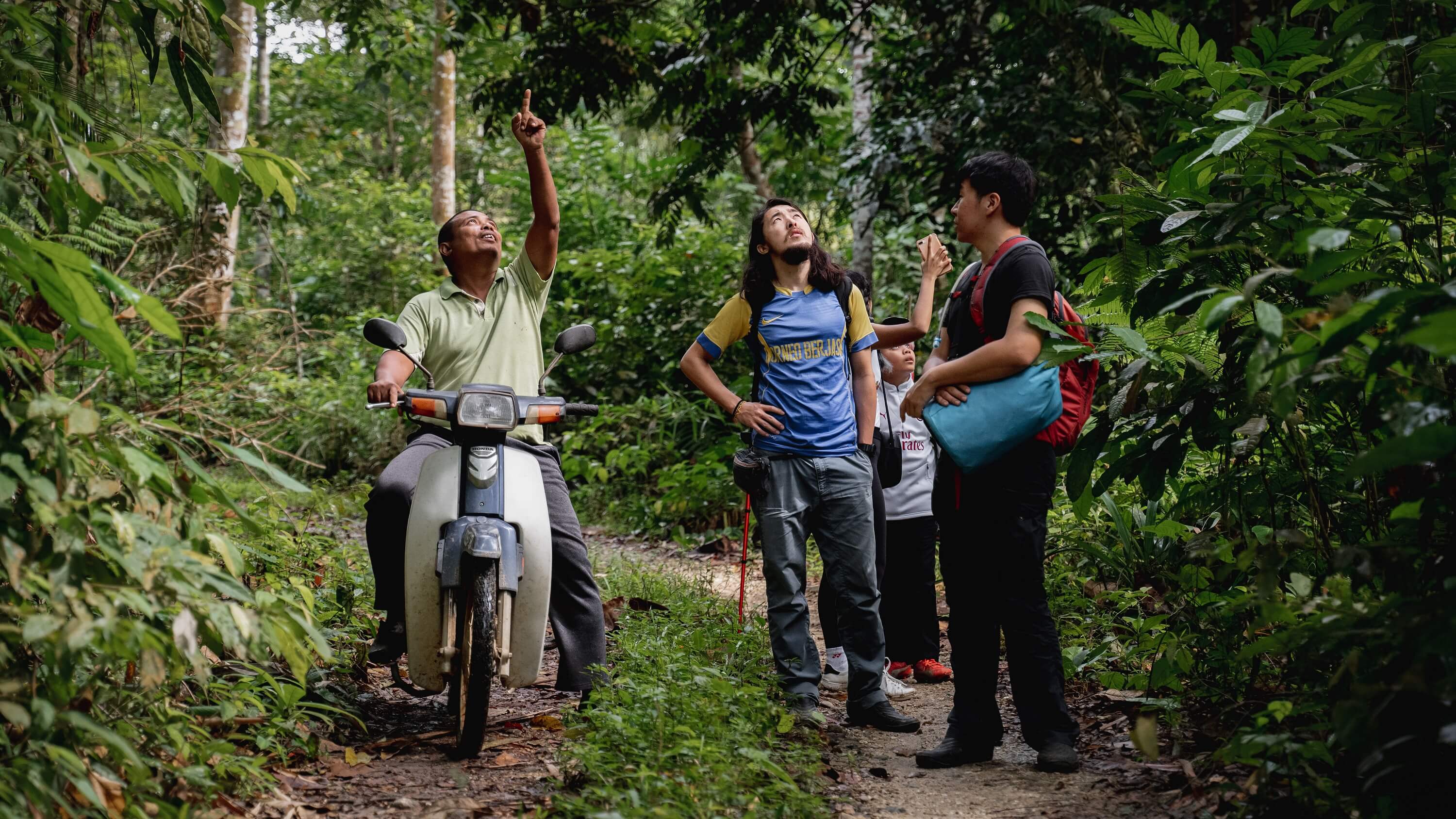Arrive in Kuala Lumpur and head to Sekeping Tenggiri guesthouse in Bangsar. Tucked behind lush greenery, this rustic property reduces its carbon footprint through natural ventilation, cleverly positioned light shafts and recycled materials. As check-in typically begins at 2pm, drop off your luggage with the housekeeper before heading out to lunch.
Take a 15-min walk to Restoran Sri Nirwana Maju and tuck into (one of) the best banana leaf rice in town. Waiters come round to dish out three types of vegetables, white rice and curry, and you can add on a serving of their crowd-pleasing fried squid or chicken. Top it off with a refreshing cup of mango lassi (yoghurt smoothie) – but don’t be surprised by the absence of a straw. The restaurant recently embarked on a straw-free campaign and also plans to phase out the use of plastic cups.
After lunch, spend the afternoon immersing yourself in a Malaysian cultural experience: exercise your creativity at a batik-making workshop, or take a heritage walk to discover Brickfields known as KL’s Little India.
For the former, take a 15-minute taxi ride (we recommend ride sharing apps like Grab) to Batik Boutique in the Sri Hartamas area, to learn the intricacies of Batik dyeing. The class begins with a brief history of the wax-resist dye tradition, followed by an introduction to different techniques such as block printing and “canting” (drawing with a pen-like tool).
As you work your artistic vision onto fabric, you’re also supporting a good cause: Batik Boutique trains and hires women from low-income backgrounds as seamstresses to produce their range of clothing, accessories and homeware. Check out their boutique and pick up some stylish souvenirs that support their cause.
Batik not your cup of tea? Take a walk through Brickfields, KL’s “Little India” that’s also home to diverse places of worship that capture Malaysia’s multicultural and multireligious heritage.
Start at the 114-year-old heritage site Vivekananda Ashrama, built in 1904 to commemorate the prominent Indian Hindu monk Swami Vivekananda.
After exploring the grounds, exit and turn left onto Jalan Tun Sambanthan. A large colourful fountain and a sandstone archway (the Torana Gate, a gift to Malaysia from the Government of India) mark the start of Little India’s main street. Switch on your senses and explore away: feast your eyes on the rainbow of sarees, sniff the myriad spices, fruits and flower garlands, and groove to Bollywood beats blasting from shophouse speakers. Take a pit stop at Restoran Chat Masala and order a teh ais tarik (iced pulled tea) to cool down.
Cross the street onto Jalan Sultan Abdul Samad and spot the Roman Catholic Church of Our Lady of Fatima. Walk on for 300m and turn right onto Jalan Berhala, where you’ll find Maha Vihara, a Sinhalese-Buddhist temple that dates back to 1895. Retrace your steps to Jalan Sultan Abdul Samad – just down the road is Zion Cathedral, a Lutheran church founded in 1924.
Walk on for 300m and turn left towards Jalan Thambipillay to soothe your tired feet at PB Blind Massage. Paralympian Lee Seng Chow started this traditional Chinese massage centre, which is staffed by professionally-trained visually impaired therapists.
At the end of the street, be prepared to queue for the city’s most popular banana fritters at the roadside stall Brickfields Pisang Goreng (across from YMCA). Enjoy your piping hot snack as you stroll for 500m (head right on Jalan Tun Sambanthan before turning left onto Jalan Tebing) towards the 116-year old Hindu Sri Kwandasamy Temple. Wrap up your urban hike with a drink at De’Divine café, located just across the temple. The cafe trains and employs underprivileged youth and school dropouts, so you can enjoy a chendol smoothie whilst supporting a worthy cause.
After a full afternoon out and about, head back to Sekeping Tenggiri to check in and freshen up before dinner.
A unique dining experience awaits you at PichaEats’ Open House. Step into a refugee family’s home and get a taste of their food and culture. Over a spread of traditional dishes, you’ll hear first-hand stories that provide a glimpse into life as a refugee in Malaysia.
These families come from various communities: Afghan, Burmese (Chin), Burmese (Rohingya), Iraqi, Palestinian and Syrian. Through offering catering services and Open Houses, PichaEats provides the refugees with a source of income and allows visitors to gain insight into their unique cultures.
Alternatively, head over to Charlie’s Café – a popular neighbourhood joint that serves Malaysian favourites and hearty Western fare. This cosy café in Taman Desa doesn’t only satisfy diners with tasty Sarawak laksa and fried chicken chop. It allows them to play a part in feeding the homeless through “pay-it-forward” meal vouchers. Every RM5 (US$1.20) voucher buys a catered-and-delivered meal for someone in need. In addition, owner Desonny Tuzan supports the livelihood of indigenous Hulu Langat farmers by sourcing agricultural produce from them.
